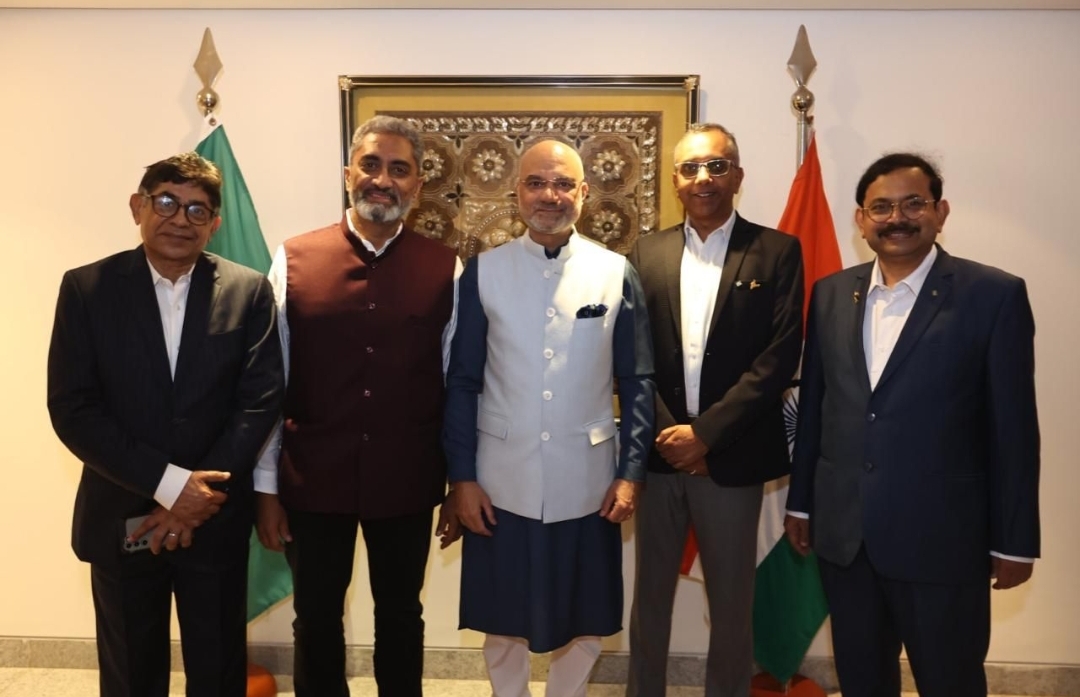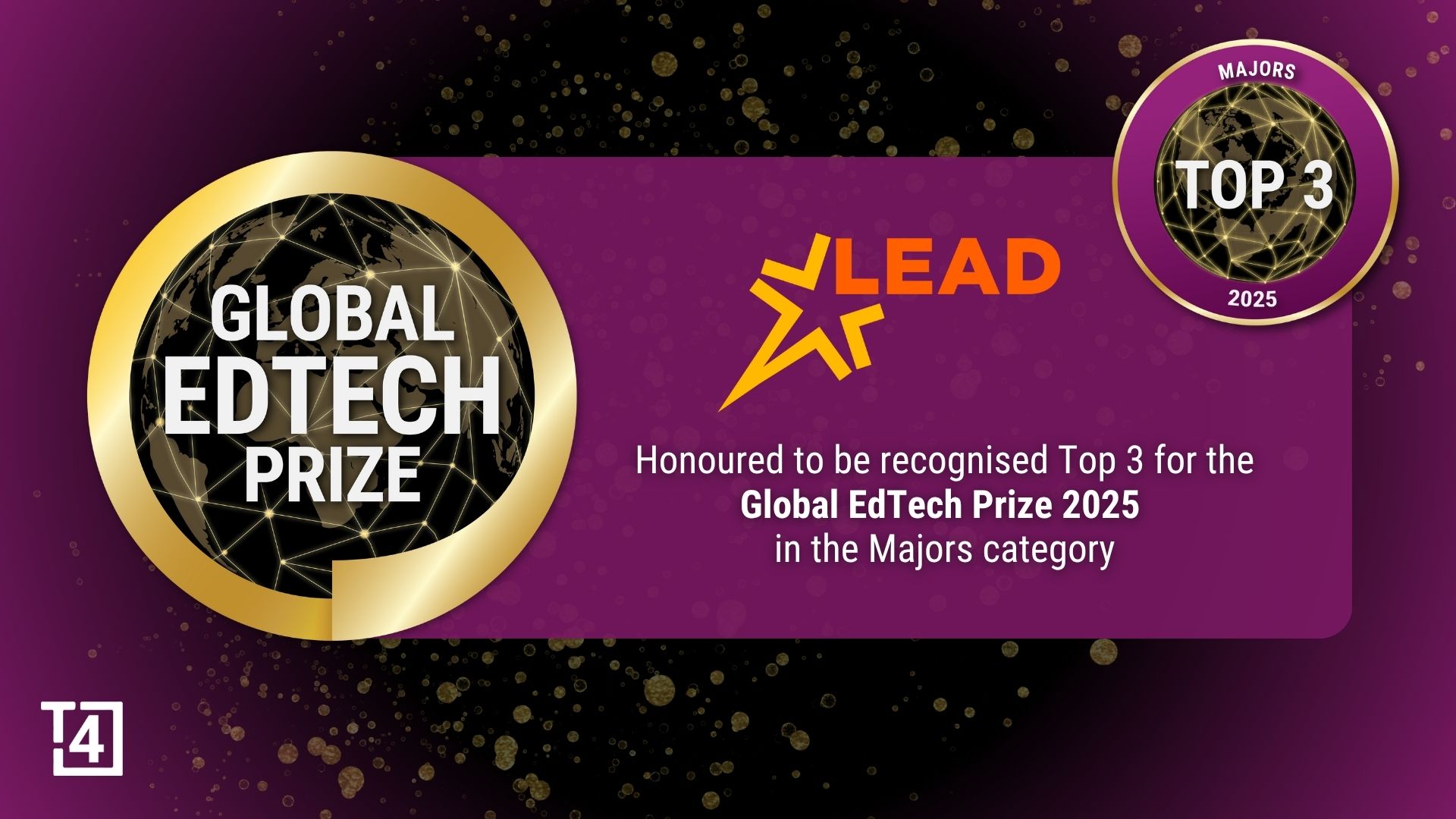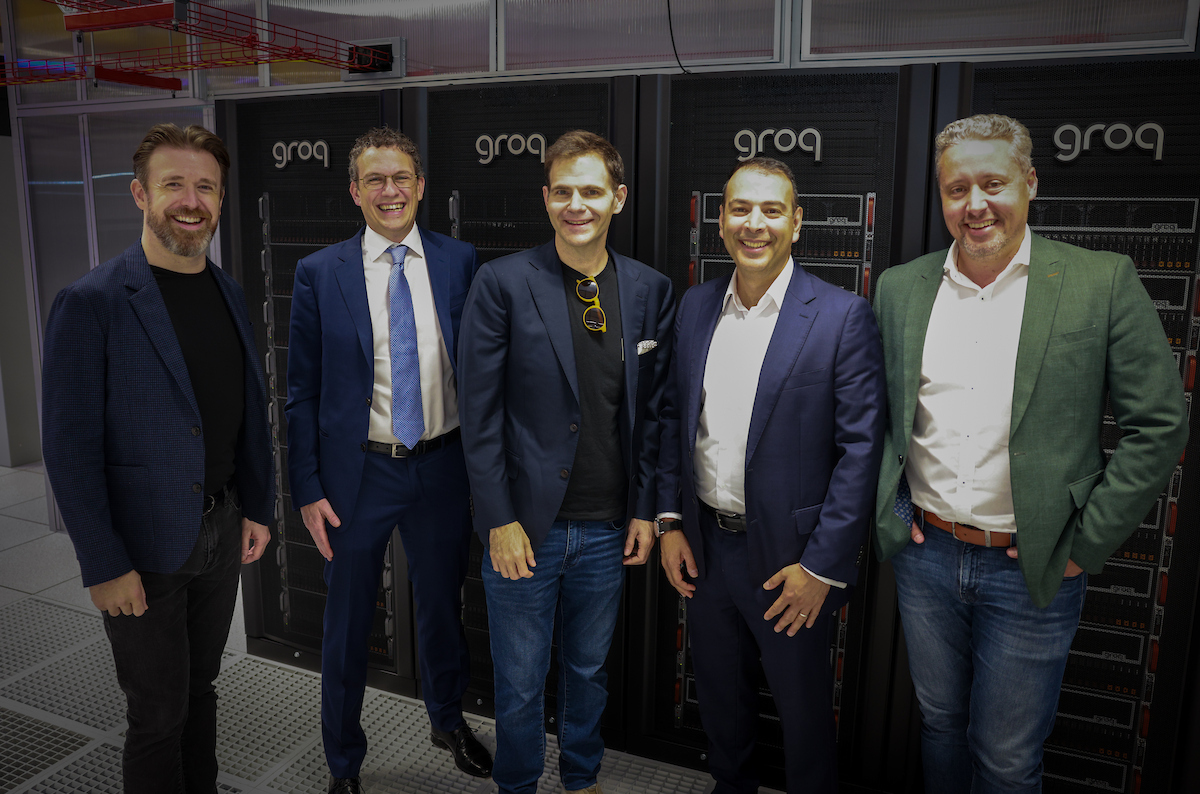20, Nov 2025
Exploring Interaction | Perfios’ Clari5 Expands Global Footprint as Real-Time Fraud Management Demand Surges
Clari5 has recently announced (attached) its global expansion with partnership with Philippine Veterans Bank for deployment of its AI-Powered – Enterprise Fraud and Risk Management (EFRM) platform. The deployment showcased at the Singapore FinTech Festival, positions Indian banking-tech as a category-defining force shaping the future of real-time fraud detection across Asia.
Clari5’s EFRM platform spans Internet and Mobile Banking channels and delivers unified fraud, AML, monitoring, and compliance infrastructure that is already GenAI-ready.
For global banks now grappling with deepfakes, social engineering, mule accounts, and real-time payments fraud, this “intelligence-ready architecture” eliminates the need to rebuild core systems when next-generation AI models emerge. They can simply plug in advanced capabilities on top of a modern foundation.
Wanted to ascertain if you would like to speak/interview Mr. Rivi Varghese, CEO, Clari5. He would be happy to speak with you on global fraud trends, India’s innovation footprint, and the emerging Perfios–Clari5 vision for unified risk and fraud management.
- 0
- By Neel Achary
20, Nov 2025
GIGABYTE and Intel Bring Next-Generation PC Innovation to Comic Con Guwahati 2025 category
GIGABYTE Technology Co. Ltd., a global leader in motherboards, graphics cards, and high-performance laptops, will be making its mark at the first-ever Comic Con in Guwahati from 22nd to 23rd November at Sarusajai Stadium in collaboration with Intel. The event will showcase state-of-the-art gaming laptops and PCs, all powered by Intel.

Over the next two days, GIGABYTE will host top gaming and tech creators along with a variety of gaming activities and exclusive offers for all visitors. On Day 1, YouTube gaming creator Jimmy Gaming will conduct a live PC-building session for all visitors and on Day 2, popular Indian tech YouTuber, The Indian Budget Gamer will lead an AI-focused workshop covering AI-assisted video editing, audio workflows, and gaming performance enhancement. Visitors will also have the opportunity to win exclusive GIGABYTE merchandise during these sessions. The showcase will also feature the latest in high-performance GIGABYTE desktops and gaming laptops powered by Intel processors, including the flagship AORUS MASTER 16 and GIGABYTE G6 along-side desktop PCs featuring the latest and greatest from GIGABYTE. A key highlight is the fully equipped Racing Simulator powered by the AORUS CO49DQ 49-inch ultra-wide gaming monitor. Fans can explore the latest AAA games, join daily gaming tournaments with a ₹25,000 prize pool.
The GIGABYTE x Intel booth will feature four fully configured, high-performance PC builds, each showcasing the brand’s most advanced components and next-generation engineering. These systems highlight GIGABYTE’s leadership across the entire hardware stack, ranging from the flagship Z890 AORUS XTREME AI TOP motherboard paired with the powerhouse AORUS GeForce RTX 5090 MASTER 32G, cooled by the premium AORUS WATERFORCE X II 360, to a creator- and gaming-optimized configuration featuring the GeForce RTX 5070 Ti AERO OC 16G on the Z890 AORUS PRO ICE. The booth will also display performance-balanced builds featuring the GeForce RTX 5060 Ti GAMING OC 16G on the B860M AORUS ELITE WIFI6E, as well as a mainstream gaming setup powered by the GeForce RTX 5080 MASTER 16G and the GIGABYTE GAMING 360 cooler. Together, these PCs demonstrate the state-of-the-art engineering, thermal innovation, and top-tier performance that define GIGABYTE’s latest generation of hardware.
Speaking about the event, Sunil Grewal, Director, GIGABYTE Technology India Pvt. Ltd., said,
“Comic Con Guwahati is an exciting opportunity for us to connect directly with the region’s passionate gaming and creator community. Along with Intel, we’re showcasing next-gen PC performance, AI-powered workflows, and immersive gaming experiences built to empower both competitive and creative users.”
Fans will also be able to try out GIGABYTE’s latest flagship laptops, including the AORUS MASTER 16, built for high-end gaming and advanced creative workloads, and the GIGABYTE G6, a performance-driven yet budget-friendly option for mainstream gamers. To complement the hands-on experience, GIGABYTE will offer special event-only purchase offers and exclusive deals during the two-day event.
20, Nov 2025
IIIT-Bangalore/COSS and Brazil’s DATAPREV Sign MoU to Establish the Centro de Infraestrutura Pública Digital (CIPD)

19, Nov 2025
BLS E-Services Deploys 10,000 GPS Devices at BC points to Strengthen Cybersecurity & Digital Payment Infrastructure
Nov 19th:- In a significant step towards securing India’s digital payment ecosystem, BLS E-Services, a leading digital service provider and leader in Business Correspondent (BC) business has deployed over 10,000 dedicated GPS devices at its BC agent outlets. This nationwide deployment is designed to implement precise geo-tagging and geo-fencing functionality, capturing the exact latitude and longitude coordinates of each outlet. The company is now accelerating toward a target of 100% GPS-enabled centres by FY 2027, ensuring its entire BC network is precisely geo-tagged and compliant with RBI’s digital payment security framework.

With digital payments growing at over 25% year-on-year and UPI volumes crossing 20 billion transactions monthly, this deployment represents a pivotal move toward a more transparent, cyber-resilient, and inclusive financial ecosystem. As per banks guidelines from 1 November, 2025, BCs cannot provide AEPS and IMPS services without GPS device, it is mandated by banks to reduce cyber and bank frauds. This initiative is a direct response to the Reserve Bank of India’s (RBI) comprehensive framework for the geo-tagging of payment touchpoints. Geo-tagging involves capturing the geographical coordinates of payment acceptance infrastructure, such as Point-of-Sale (PoS) terminals and QR codes. The program is a cornerstone of the central bank’s broader strategy to enhance digital payment penetration and ensure inclusive access to digital financial services for all citizens.
“The strategic deployment of over 10,000 dedicated GPS devices is a proactive measure that directly supports the RBI’s visionary framework. By ensuring pin-point accuracy in geo-tagging, even in the most remote locations, we are not only fulfilling a critical regulatory mandate but also building a more secure, transparent, and trustworthy ecosystem for every merchant and citizen. This initiative is a foundational step towards preventing fraud, optimizing resource allocation, and driving truly inclusive financial growth across the nation,” said Shikhar Aggarwal, Chairman, BLS E-Services Ltd.
The company through its subsidiaries Zero Mass Pvt. Ltd. and Starfin India Pvt. Ltd. operates one of the largest BC networks in India, with 45,000+ agents (as on June, 30, 2025). These centres delivers banking, remittance, deposits and assisted services across rural and semi-urban India, while also supporting banks in meeting priority-sector obligations.
“The dedicated GPS devices will enable real-time location verification, fraud prevention and high-accuracy mapping even in low-connectivity regions creating one of India’s most secure and data-backed BC infrastructures. This deployment marks a pivotal advancement in the security and integrity of India’s digital payment infrastructure,” Mr Aggarwal added.
A primary objective is to ensure the accuracy and reliability of geo-tagged data, a crucial risk management and regulatory compliance requirement. This is especially vital in rural and remote areas where limited mobile network connectivity can compromise the precision of location data collected through standard smartphones. The deployment of dedicated GPS devices guarantees high-accuracy geo-coordinate capture even in offline or low-network environments.
19, Nov 2025
LEAD Learning System Ranked in Top 3 at Global EdTech Prize
National, Nov 19:- LEAD Group, India’s leading School Learning Systems company, has been named among the global Top 3 in the Majors Category at the inaugural Global EdTech Prize, an international competition recognising educational-technology tools, solutions and organisations that are making significant impact in classrooms worldwide.

Selected from a pool of global education innovators, LEAD Group was named among the Top 3 for its Learning System that is improving student outcomes by codifying best practices in curriculum, teaching and monitoring into a technology-led, accessible system for teachers, students and leaders in 8500+ schools across India.
The Global EdTech Prize follows a rigorous, multi-stage selection process led by international education experts, who evaluate submissions on evidence of impact, scalability, innovation and long-term benefit to learners. The finalists included leading education companies from the United States, Australia, Singapore, the UAE, Jordan, and more, marking LEAD Group’s victory as a significant achievement for the Indian EdTech ecosystem.
LEAD Group operates in the dynamic PreK–12 education sector, serving mid-and-affordable range private schools that form the backbone of education delivery for millions of children across India. LEAD’s integrated Learning System today shifts more than 38 lakh students away from rote learning towards true conceptual understanding. LEAD Group is now building the next frontier of personalised school education in India with AI-driven, intelligent learning systems that support every child’s unique academic needs, and empower school leaders and teachers with real-time data and insights.
19, Nov 2025
Sinch Releases 2026 Predictions: AI to Redefine How Brands Connect
New Delhi, Nov 19: Artificial intelligence is rewriting the rules of digital communication. According to Sinch (Sinch AB (publ), XSTO: SINCH) 2026 predictions, AI agents, voice technology, and conversational messaging will converge to drive a fivefold increase in customer interactions, with smarter systems, data flows, and security layers redefining on brands connect with consumers worldwide.
The convergence of conversational messaging and generative AI is creating an explosion in communication volume. Sinch predicts that AI agents for both businesses and consumers will create entirely new categories of interaction, redefining engagement models and forcing companies to redesign their communication frameworks for scale, context, and trust.
“India is at the forefront of the new era of intelligent communication. With the most diverse and digitally engaged population in the world, we see AI, voice, and conversational technologies coming together to reimagine the way businesses connect with customers. From multilingual voice agents to AI-driven customer journeys, India is fast turning into the proving ground for innovation at scale. At Sinch, our focus is on embedding intelligence into every interaction-helping enterprises move from efficiency to empathy, from automation to truly human digital experiences.”, said Ankur Agrawal, Chief Business Officer at Sinch India.
Sinch’s top eight tech predictions for 2026:
- AI agents will spark an explosion in conversation volume and opportunity
Global message traffic is expected to rise three to five times across industries. As conversational AI enables businesses to handle exponentially more interactions, new data and workflow architectures will be required to manage billions of parallel, context-aware exchanges. With AI agents now able to communicate directly with each other, Sinch expects total conversation volumes to surge up to fivefold across industries. - AI agents will evolve from simple cost savers to true growth engines
AI will no longer be about deflection but expansion. Every customer interaction becomes a source of insight and potential revenue. Forward-thinking companies already see up to 30% higher order value from post-resolution upsells handled by AI. - Voice AI will become the preferred channel for complex conversations
New Voice AI systems now respond in around 800 milliseconds, nearly as fast as human conversation. Real-time intent recognition and contextual memory deliver a more human experience that consumers will prefer for complex issue resolution. - Conversational messaging will redefine customer expectations
SMS will remain critical for reach and verification, but rich channels like RCS and WhatsApp, will transform single interactions into two-way conversational experiences. Brands that integrate these channels into one AI-driven journey layer will lead the market. - Connected customer journeys will unlock loyalty and long-term value
Connected customer journeys will unlock loyalty and long-term value.
In 2026, customers will expect seamless transitions between devices and channels, with context carried across every touchpoint. Businesses that fail to synchronize data across voice, chat, and email will lose relevance. - Regionalized communication strategies will separate global leaders from followers
In markets like Brazil and India, WhatsApp accounts for over 90% of business-to-consumer messaging traffic. RCS adoption accelerates in North America, and super apps drive Asia’s ecosystem. Global organizations must accommodate regional differences without sacrificing compliance or performance. - Verified and secure communications will define the future of brand trust
As deepfake and voice spoofing accelerate, verified senders, branded visuals, and frictionless authentication will define digital trust. Unverified or irrelevant content will be filtered out before it reaches the user. - Tomorrow’s intelligent inboxes will reinvent email as a precision channel
42% of consumers expect personalized promotions via email, but 33% percent say they are frustrated when these messages are irrelevant. Intelligent inboxes will penalize generic content and prioritize verified, contextually relevant messages. The penalty for irrelevance will be absolute: if you are not trusted or personalized, you will be invisible.
18, Nov 2025
LAVA ROLLS OUT EXCLUSIVE AGNI 4 EARLY ACCESS UNDER THE DEMO@HOME CAMPAIGN
New Delhi, Nov,18: Lava International Limited, one of the fastest growing Indian smartphone brands, today announced an exclusive opportunity for consumers to get early access to experience the upcoming AGNI 4 through its Demo@Home campaign. This initiative allows selected users to witness the device ahead of its launch, with a Lava engineer visiting their homes to offer a complete hands-on walkthrough.

The campaign is live from 15th to 20th November 2025, and is currently running in Delhi, Mumbai and Bengaluru. AGNI fans in these cities can register to be a part of this one-of-a-kind experience by filling out the form on the link below. A limited number of participants will be shortlisted and contacted directly by the brand for the exclusive
Those selected will receive a personalised, no-obligation demo of AGNI 4 between 20th and 24th November 2025, offering an exclusive sneak peek at the device’s design and capabilities from the comfort of their homes.
This AGNI 4 Elite Pass experience is part of Lava’s broader Demo@Home programme, which is designed to make smartphone exploration more convenient and consumer-friendly by bringing product demonstrations directly to users.
17, Nov 2025
Gartner Predicts AI Will Touch All IT Work by 2030, Urges Readiness
Gartner Survey Finds All IT Work Will Involve AI by 2030; Organizations Must Navigate AI Readiness and Human Readiness to Find, Capture and Sustain Value
Kochi, Nov 17th : By 2030, CIOs expect that 0% of IT work will be performed solely by humans, 75% will be done by humans augmented with AI, and 25% by AI alone, according to a July 2025 Gartner, Inc. survey of over 700 CIOs. This underscores the need for organizations to focus simultaneously on AI readiness and human readiness to achieve sustainable value from AI.
During the opening keynote of the Gartner IT Symposium/Xpo in Kochi, attended by over 1,100 CIOs and IT executives, Gartner analysts highlighted that few organizations are effectively addressing both aspects.
“Gartner has guided CIOs on their AI journey for years — from shaping AI ambitions in 2023, to pacing AI outcomes in 2024. This year, we map the right path to go all-in on AI value,” said Arun Chandrasekaran, Distinguished VP Analyst at Gartner.
AI and Human Readiness: The Dual Imperative
“While AI is not yet fully capable of delivering value independently, humans are even less ready to capture it,” explained Galliopi Demetriou, VP Analyst at Gartner. AI readiness ensures that technology can deliver value for specific use cases, while human readiness ensures the workforce and organizational structures are equipped to capture and sustain that value.
Transforming the Workforce for AI
Gartner predicts AI’s impact on global jobs will be neutral through 2026 and that by 2027, AI will create more jobs than it displaces. “AI is about workforce transformation, not job loss. CIOs should restrain hiring for low-complexity roles while redeploying talent to revenue-generating areas,” Chandrasekaran noted.
AI will render some traditional skills such as summarization, information retrieval, and translation less critical, while generating demand for new AI-specific skills. “Unlike traditional skills that improve task efficiency, AI skills enhance human capabilities, making workers better thinkers, communicators, and motivators,” said Demetriou. Organizations are advised to continuously test employees to prevent skill atrophy.
Finding Value Through AI Readiness
Organizations must assess AI readiness across three dimensions:
- Costs: A May 2025 survey of 506 CIOs revealed that 74% were breaking even or losing money on AI investments. Each AI tool often carries multiple ancillary costs including training and change management.
- Technical Capabilities: Some AI functions, like content generation, search, and summarization, are mature, while others, such as AI accuracy and autonomous multi-agent systems, require piloting and process development to ensure value.
- Vendors: Choice depends on scale and use case. Hyperscalers support large-scale deployments, startups provide domain-specific AI solutions, and AI R&D companies offer innovation at the cutting edge but limited scale. Organizations must also consider AI sovereignty in vendor decisions.
Gartner has introduced the “You Are Here” Positioning System, a framework to assess organizational readiness and guide leaders in finding, capturing, and sustaining AI value.
“AI has the potential to redefine entire industries, from hospitals to manufacturing, but the true payoff comes when AI enhances core competencies and solves previously impossible problems,” said Chandrasekaran.
17, Nov 2025
OPPO Announced Apex Guard, Reaffirming its Commitment to Next-Level Quality
India, Nov 17:— OPPO today introduced Apex Guard, a full technology suite designed to safeguard the user experience with unprecedented quality in hardware and software. The new concept marks OPPO’s latest step in redefining what consumers can expect from smartphones—moving beyond everyday use to cover extended product lifespans and raise industry standards to the next level.

At OPPO’s global headquarters and R&D hub at the Binhai Bay Campus, OPPO unveiled its vision for next-level quality: embedding its commitment to quality into every step of the product development process, from early-stage research to full-device validation.
“Quality is the foundation of everything,” said Grus Shan, Director of Manufacturing at OPPO. “Through continuous breakthroughs in quality, OPPO is committed to protecting the freedom of every user on their journey in life. Quality isn’t just a feature, it’s the freedom to Make Your Moment.”
Raising Quality to New Heights with Apex Guard
Rooted in OPPO’s commitment to addressing genuine user needs with comprehensive solutions, Apex Guard is a technology suite that extends across all product lines, designed to elevate quality across three key dimensions:
Next-level quality beyond everyday use:
With fundamental breakthroughs in design, Apex Guard not only protects against unexpected situations like water exposure or accidental drops, but also ensures a seamless and effortless experience beyond everyday use. Through pioneering research in materials and product design, OPPO has developed materials like Ultra-High-Strength Steel and AM04 aerospace-grade aluminum alloy that withstand daily wear and tear and also introduced structural solutions like Armour Shield that deliver protection far beyond everyday expectations.
Next-level quality beyond product lifespan:
Apex Guard ensures next-level quality for a worry-free experience that truly stands the test of time. Through innovations like OPPO Silicon-Carbon Battery with customized spherical silicon-carbon material, which delivers long-lasting safety while extending the lifespan of the battery cell by an additional 400 cycles, Apex Guard enables OPPO devices to continue to perform like new for even longer.
Next-level quality beyond existing standards:
To ensure exceptional quality from the outset, OPPO collaborates with renowned international testing organizations including TÜV Rheinland, TÜV SÜD, and SGS, and holds its devices to standards far above the rest of the industry. OPPO devices undergo highly precise manufacturing processes across every detail and are subject to the most rigorous testing procedures. This includes multiple rounds of quality assessments for new materials and over 180 device tests from pre-R&D to the end of the product lifecycle. Beyond products, OPPO after-sales services also surpass industry standards, providing additional quality assurance throughout.
Rethinking Quality with Next-Level Software Smoothness
Recognizing that the smoothness of the user experience is one of the most direct ways in which users perceive smartphone quality, OPPO has also made software innovation an integral part of the Apex Guard suite to both enhance and extend this experience.
To ensure everyday smoothness, the All-New Luminous Rendering Engine in ColorOS 16 introduces the first Unified Animation Architecture for Android, delivering seamless app launches and smooth transitions across the entire system. For more demanding scenarios, Chip-Level Dynamic Frame Sync Technology within the All-New Trinity Engine helps the system respond in real-time to frame rendering when multitasking. Sensor-Offload technology meanwhile, leverages the powerful SoC to handle critical sensor tasks, significantly lowering total power consumption when recording 4K 60fps videos.
To further guarantee long-term performance, OPPO has introduced Instant Refresh into ColorOS 16 for entry-level devices, allowing users to reduce data fragmentation and optimize app permissions with just one tap. OPPO also conducts rigorous aging tests on devices by simulating long-term phone use over 48-, 60-, or 72-month periods, to ensure each device remains smooth and responsive after years of use.
As part of its focus on smoothness, OPPO has developed evaluation systems that quantify smoothness with measurable data. The OPPO Smoothness Baseline Test measures software performance across hundreds of real-world scenarios, while the industry-first Parallel Animation Standard 6 Zero (0 Lag, 0 Latency, 0 Flicker, 0 Crash, 0 Mislaunch, 0 Freeze) focuses on home-screen app launches and seamless transitions, setting a new benchmark for software quality across all devices, from the entry-level A Series to the flagship Find Series.
Binhai Bay Campus: The Home of OPPO Quality
As OPPO adds more facilities to Binhai Bay, the campus is set to benefit from improved scale and synergy, while access to more advanced equipment and centralized resources will allow OPPO to push its commitment to quality even further. The campus features a series of advanced laboratories—including a Materials Lab, Intelligent Terminal Testing Lab, Power Consumption Intelligent Lab, and Communication Lab—each conducting quality assessments from different perspectives to ensure dependable hardware and smooth software user experience.
17, Nov 2025
Equinix Supports Groq in Launching Low-Latency AI Inference in Asia-Pacific
MUMBAI, Nov 17: Groq, a global pioneer in AI inference, has expanded its global AI infrastructure footprint to the Asia-Pacific region through its deployment in Equinix’s International Business Exchange™ (IBX®) data center in Sydney, Australia. Following launches in the US and EMEA, the collaboration brings Groq’s fast, low-cost and scalable LPU Inference Engine closer to organizations and the public sector in India and the wider Asia-Pacific region.

Under this partnership, Groq and Equinix will establish one of the largest high-speed AI inference infrastructure sites in the country with a 4.5MW Groq facility in Sydney, offering up to 5x faster and lower cost compute power than traditional GPUs and hyperscaler clouds. Leveraging Equinix Fabric®, a software-defined interconnection service, organizations in Asia-Pacific will benefit from secure, low-latency, high-speed interconnectivity, ensuring seamless access to GroqCloud™ for production AI workloads, ensuring full control and compliance.
The demand and adoption of AI-driven solutions continue to grow in Asia-Pacific. According to IDC’s latest Worldwide AI and Generative AI Spending Guide, AI and Generative AI (GenAI) investments in the region are projected to reach US$110 billion by 2028, growing at a compound annual growth rate (CAGR) of 24.0% from 2023 to 2028.
By combining Groq’s cutting-edge AI inference technology with Equinix’s global infrastructure and vendor-neutral connectivity solutions, organizations can efficiently scale their AI workloads while maintaining cost-effectiveness and speed.
Supporting Quotes:
Cliff Obrecht, Co-Founder and COO of Canva, said;
“We’re entering a new era where technology has the potential to massively accelerate human creativity. With Australia’s growing strength in AI and compute infrastructure, we’re looking forward to continuing to empower more than 260 million people to bring their ideas to life in entirely new ways.”
Jonathan Ross, CEO and Founder of Groq, said;
“The world doesn’t have enough compute for everyone to build AI. That’s why Groq and Equinix are expanding access, starting in Australia.”
Scott Albin, General Manager, APAC, Groq, said;
“Asia-Pacific is a key growth market for Groq, with over half of our global developers already using GroqCloud based here. Our deployment in Equinix’s Sydney data centre is our first step to bring high-performance, cost-efficient AI inference closer to the region, enabling secure, low-latency access while supporting data sovereignty and privacy. Together, we’re building the infrastructure to drive AI innovation and growth in Asia-Pacific.”
Cyrus Adaggra, President, Asia-Pacific, Equinix, said;
“Groq is a pioneer in AI inference, and we’re delighted they’re rapidly scaling their high-performance infrastructure globally through Equinix. Our unique ecosystems and wide global footprint continue to serve as a connectivity gateway to their customers and enable efficient enterprise AI workflows at scale.”
Key Highlights:
- AI performance at scale – Groq’s LPU Inference Engine, optimized by a custom-built compiler, achieves unmatched throughput and latency for inference on next-gen open-source LLMs.
- Purpose-built for AI inference – The LPU delivers instant speed, unparalleled affordability, and energy efficiency at scale. Fundamentally different from the GPU, the LPU was designed for AI inference and language.
- Equinix Fabric – Groq leverages Equinix’s on-demand, software-defined interconnection service that securely connects businesses to clouds, partners, and digital ecosystems across Equinix’s 270+ facilities across 37 countries.
- Scalable innovation – The partnership demonstrates how Equinix enables next-generation AI companies to scale globally without building their own infrastructure footprint. Groq technology can be accessed by anyone via GroqCloud, while enterprises and partners can choose between cloud or on-prem AI compute centre deployment.







